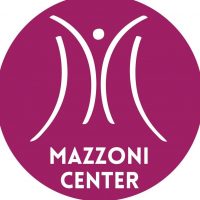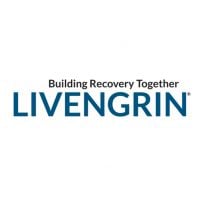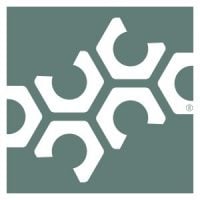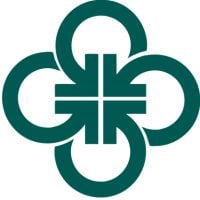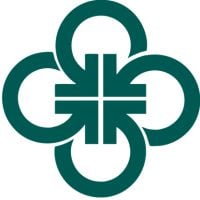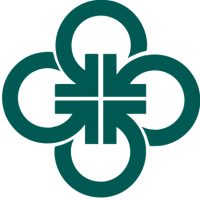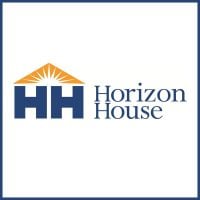Open Door Counseling at Mazzoni Center
Drug Rehab Center in Philadelphia, Pennsylvania
Open Door Counseling at Mazzoni Center offers comprehensive addiction treatment services, including detoxification, drug rehab and intensive outpatient programs tailored to each individual's needs, as well as aftercare support and family counseling.
About This Philadelphia, PA Facility
Open Door Counseling at Mazzoni Center in Philadelphia, PA is an addiction treatment facility that has been providing services since it was founded in 1979. This center specializes in helping individuals who are struggling with opioid addiction, substance abuse, dual diagnosis, drug addiction, mental health issues, and alcoholism. With a commitment to comprehensive care and holistic approach, Open Door Counseling provides various levels of care including aftercare support, drug rehab, dual-diagnosis treatment, intensive outpatient programs, outpatient programs, and detoxification services. The center accepts private health insurance to ensure accessible treatment for those seeking assistance.
Open Door Counseling at Mazzoni Center is dedicated to offering a range of services and treatment methods for those struggling with addiction and substance abuse. Their focus is on addressing not only the addiction itself but also any co-occurring mental health disorders. Through their aftercare support program, individuals can receive continued guidance and assistance following the initial treatment. The center also offers different levels of care based on individual needs and circumstances such as intensive outpatient programs or outpatient programs. Detoxification services are available to help manage withdrawal symptoms during the initial stages of recovery. By providing comprehensive care coupled with accessible treatment options, Open Door Counseling aims to support individuals in their journey towards recovery from addiction and substance abuse.
Genders
Ages
Modality
Additional
Conditions and Issues Treated
Rehab centers exist in Philadelphia, PA to help individuals bounce back from substance abuse, which is an umbrella term for drug and alcohol addiction. Drug addiction refers to the use of illegal drugs and improper use of prescription drugs. Centers like Open Door Counseling at Mazzoni Center provide individuals a chance to access individual and group therapy that can be monumental for recovery.
Substance abuse includes all problems that stem out from using various psychoactive substances. It is also a diagnostic term used by Diagnostic and Statistical Manual of Mental Disorders (DSM-IV) to define the mental and physical impairment or distress caused by misuse and overuse of certain substances in a period of 12 months.
Opioid addiction involves addiction to legal or illegal opioids. It may happen very quickly with any opioid use. Sometimes within a matter of days. Opioid addiction is a known as a high-risk factor for future heroin addiction.
Opioid withdrawal can be extremely uncomfortable and lead the user to continue to use even if they want to quit. Stopping using an opioid requires careful medical observation. Sometimes the withdrawal can persist for many weeks, which can put the user at a high risk for relapse.
It is recommended to receive inpatient treatment and a medically supervised detox like those offered at Open Door Counseling at Mazzoni Center in Philadelphia, PA, PA, to manage the withdrawal process while learning lasting tools to maintain recovery. In some circumstances medications can be used to manage opioid addiction.
People with dual diagnosis have coexisting addiction and a mental disorder. 9.2 million US adults had a co-occurring disorder in 2018, so not just limited to Pennsylvania residents. Best treatment combines medication, psychotherapy (talk therapy), support group, and inpatient rehabilitation. Sometimes, complementary therapies – yoga, massage, and acupuncture – may also be used.
Levels of Care Offered
This center offers a variety of custom treatment tailored to individual recovery. Currently available are Aftercare Support, Detox, Drug Rehab, Dual-Diagnosis, Intensive Outpatient, Outpatient, with additional therapies available as listed below.
Detoxification is a process that allows the patient to stop using opioids without experiencing severe withdrawal symptoms. This can be necessary for those who have been addicted for a long period of time or who are struggling with chronic pain.
During this process, addicts will receive medication and psychological support from doctors and other medical professionals until they can control their cravings.
Intensive outpatient programs mostly conduct meetings on weekdays. Group therapy is the main element in most intensive outpatient programs. Most IOPs last for about 90 days and include drug use monitoring and testing. A Pennsylvania IOP, like what’s offerd at Open Door Counseling at Mazzoni Center, take much more time than a standard outpatient program. Some programs offer other services as well, such as employment assistance and medication management.
Outpatient treatment can be considered the lowest intensity level of addiction treatment in Philadelphia, PA. It is ideal for early phase addiction or lower intensity addictions. Open Door Counseling at Mazzoni Center peer group support, 12-step programs, and individual counseling may still be involved.
After treatment, addiction treatment can be frightening for newly sober people. Aftercare support provided by Open Door Counseling at Mazzoni Center is designed to give resources and help on a continued basis. It can involve finding housing in and around Pennsylvania, setting up 12-step meeting groups, continued medical monitoring, and counseling.
Open Door Counseling at Mazzoni Center‘s Therapies & Programs
Couples therapy is an approach wherein the patients and their partners are engaged together as a part of the treatment process. When a person becomes a victim of substance abuse, it affects the patient and the people around him, particularly his partner. Their relationship can become strained due to lack of communication, financial issues, loss of trust, lack of intimacy, and physical abuse in more severe cases.
Couples therapy addresses these issues and tries to rebuild the trust between the partners. The partner’s involvement in the process will result in greater chances of treatment success and sustained recovery.
Family therapy is a set of therapeutic approaches that assumes that the entire family is a system. It utilizes the strengths and resources of the family to help the patient refrain from resorting to substance abuse. It helps to repair relationships and improve communication between family members.
Group therapy happens at Open Door Counseling at Mazzoni Center in a controlled group environment, as opposed to a one-on-one setting. It supports Philadelphia, PA patients’ recovery by offering a sense of comfort and letting them know that they are not alone. Through shared conversations, patients also learn to develop faith and understanding and gain insight on their addictions.
Unresolved trauma is often a key reason why many patients resorted to substance abuse. Trauma therapy refers to treatment wherein specialist therapists help the patients to resolve the trauma that led the patients to substance abuse. The trauma could be physical abuse, sexual abuse, war, natural disasters, divorce, accident, loss of a loved one, etc. Thinking of these traumatic events causes emotional disturbances like anxiety, depression and results in addiction. If trauma is the primary cause of substance abuse, then both issues must be addressed. Otherwise, there is a risk of relapse. Trauma therapy also improves the cognitive functions and provides long term benefits.
Dialectical Behavior Therapy (DBT) is an improved version of Cognitive Behavioral Therapy (CBT). DBT is a treatment of choice for people suffering from self-harming behaviors characterized by cutting and suicidal thoughts or inclinations.
This treatment is developed to help individuals recognize their thought patterns, behaviors, and feelings. It has demonstrated its effectiveness for people that are finding it difficult to control their emotions and urges. Conditions such as obsessive-compulsive disorder and borderline personality disorder also benefit from DBT as it imparts individuals stress-management techniques and enhanced self-esteem so they can sustain their sobriety by reducing the impact of triggers and out-of-control emotions.
Cognitive behavioral therapy (CBT) is a way of addressing concerns through talking. It can be used in individual counseling sessions. Talking through issues with professionals at Open Door Counseling at Mazzoni Center can identify sources of discomfort or unhealthy thoughts. It is a way of learning about yourself and your individual perceptions. CBT is a healthy way of addressing some behaviors which may be bringing unintended consequences in your life.
Rational Emotive Behavior Therapy (REBT) sees a person suffering from substance addiction to have illogical reasoning, counterproductive actions, and does not see things clearly. Due to this, REBT deals with cognition, images, and behavior extensively to rectify the client’s bad habits. REBT pushes an individual to become more reasonable and choose a life without the repercussions of addictions.
Patients at Open Door Counseling at Mazzoni Center in Philadelphia, PA learn how to self-soothe by conducting rational self-counseling. REBT provides their patients with the skill sets necessary in handling problems all by themselves, without seeking professional help. The process calls for practice, reiteration, and bolstering the new way of thinking being introduced to the patient.
Payment Options Accepted
For specific insurance or payment methods please contact us.
Is your insurance accepted?
Ask an expert, call (888) 674-0062
Additional Details
Specifics, location, and helpful extra information.
Philadelphia, Pennsylvania 19107 Phone Number215-563-0663 x209 Meta DetailsUpdated November 25, 2023
Staff Verified
Patient Reviews
There are no reviews yet. Be the first one to write one.
Philadelphia, Pennsylvania Addiction Information
Pennsylvania ranks 14th in the nation for drug-related deaths. More than 10% of all deaths in Pennsylvania have been related to drugs and alcohol. 30% of Pennsylvania youth reportedly drink alcohol monthly, with more than 20,000 teenagers having an alcohol problem. The rate of opioid misuse in Pennsylvania is double the national average.
Drug addiction and abuse are a big problem in Philadelphia, Pennsylvania. According to recent statistics, about 73,000 people in Philadelphia struggle with drug addiction. This means that about 7.5% of the population is addicted to drugs. Philadelphia also has one of the highest overdose rates in the country, with about four deaths per 100,000 people. It is important to choose a program that fits the individual's needs and addiction severity.
Treatment in Nearby Cities
- Kittanning, PA (237.5 mi.)
- Oil City, PA (259.5 mi.)
- Haverford, PA (9.2 mi.)
- Watsontown, PA (119.1 mi.)
- Punxsutawney, PA (212.0 mi.)
Centers near Open Door Counseling at Mazzoni Center
The facility name, logo and brand are the property and registered trademarks of Open Door Counseling at Mazzoni Center, and are being used for identification and informational purposes only. Use of these names, logos and brands shall not imply endorsement. RehabNow.org is not affiliated with or sponsored by Open Door Counseling at Mazzoni Center.
